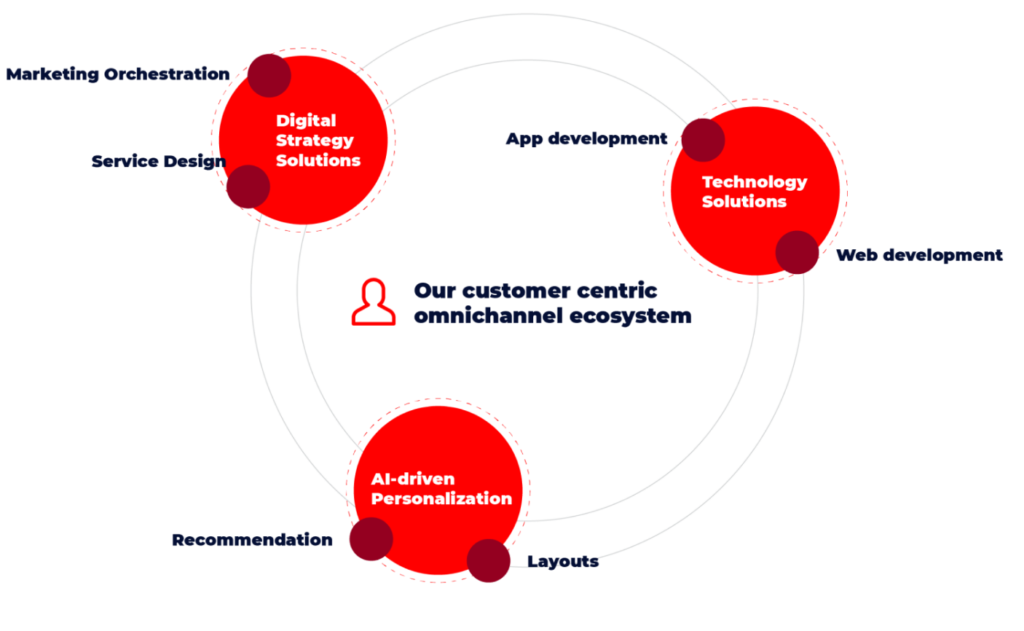
The Digital Age of Customer Expectations
Contents
In today’s hyper-connected digital world, customers expect seamless, personalized experiences across multiple channels. Whether they engage via social media, live chat, email, or in-store visits, they demand consistency. Businesses that fail to meet these expectations risk losing customers to competitors who master omnichannel engagement.
To achieve this level of sophistication, organizations must rethink their approach to customer relationship management (CRM). A well-integrated CRM system acts as the central hub, harmonizing interactions and ensuring every customer feels heard, valued, and understood.
Why CRM is the Key to Omnichannel Success
Imagine trying to run a business without knowing who your customers are or how they’ve interacted with you in the past. That’s what happens when companies operate in silos. Without an integrated CRM, different departments—sales, marketing, and customer service—struggle to access shared data, leading to inconsistent communication and missed opportunities.
A CRM-powered omnichannel strategy ensures:
- Seamless Customer Journeys: Customers can transition between channels without repeating information.
- Personalized Experiences: AI-driven insights tailor interactions based on past behaviors and preferences.
- Operational Efficiency: Teams have real-time access to customer history, improving response times and resolutions.
- Data-Driven Decision Making: Analytics and reporting highlight trends, allowing businesses to optimize engagement strategies.
Components of a CRM-Powered Omnichannel Strategy
For a CRM system to effectively orchestrate customer delight, it must integrate key components that enhance the customer experience. Here’s what businesses need to focus on:
1. Unified Customer Profiles
A 360-degree customer view consolidates all interactions—website visits, purchases, support tickets, and social media interactions—into a single, accessible profile. This ensures that every department has a complete understanding of the customer’s journey.
2. AI-Driven Personalization
Modern CRM platforms leverage artificial intelligence (AI) to analyze customer behaviors, predict needs, and provide personalized recommendations. This allows businesses to engage customers at the right moment with tailored messaging and offers.
3. Seamless Integration Across Channels
A truly omnichannel CRM must connect seamlessly with:
- Social media platforms (Facebook, Twitter, Instagram, LinkedIn)
- Email marketing systems
- E-commerce and point-of-sale (POS) systems
- Customer support tools (live chat, helpdesk software, chatbots)
- Mobile apps
4. Real-Time Customer Support
Customers expect immediate assistance, whether through chatbots, live agents, or self-service portals. A CRM-integrated support system can automatically assign inquiries to the right department, ensuring faster resolution times.
5. Automation for Efficiency
Automation within CRM systems enhances efficiency by streamlining repetitive tasks such as:
- Lead nurturing workflows
- Follow-up emails
- Customer feedback collection
- Appointment scheduling
This frees up teams to focus on high-value interactions that strengthen relationships.
6. Data Security and Compliance
With GDPR, CCPA, and other data privacy regulations, businesses must ensure their CRM systems provide robust security measures. Secure CRM solutions include encryption, access controls, and compliance management to protect customer data.
Overcoming Challenges in CRM Adoption
Despite the advantages, businesses often face challenges in CRM implementation:
- Resistance to Change: Employees accustomed to traditional workflows may be reluctant to adopt new systems.
- Integration Complexity: Merging existing tools and databases into a centralized CRM can be challenging.
- Cost Concerns: Custom CRM solutions require investment, but the ROI outweighs the initial expense.
To overcome these hurdles, businesses should focus on user training, phased implementation, and choosing CRM solutions that align with their operational needs.
The Future of CRM and Omnichannel Engagement
The future of CRM-driven omnichannel engagement lies in:
- Predictive Analytics: Anticipating customer needs before they arise.
- Voice and Chat AI: Enhancing customer support with conversational AI.
- Augmented Reality (AR) and Virtual Reality (VR): Transforming customer experiences through immersive interactions.
- Blockchain for Data Security: Ensuring transparency and protection of customer information.
Conducting the Perfect Symphony
An orchestrated omnichannel CRM strategy ensures businesses deliver customer experiences that are efficient, personalized, and seamless. By investing in the right CRM solutions and aligning them with customer engagement goals, companies can turn chaos into harmony—building loyalty and driving sustainable growth.
Are you ready to transform your business into a CRM-powered symphony of customer delight? The time to act is now!